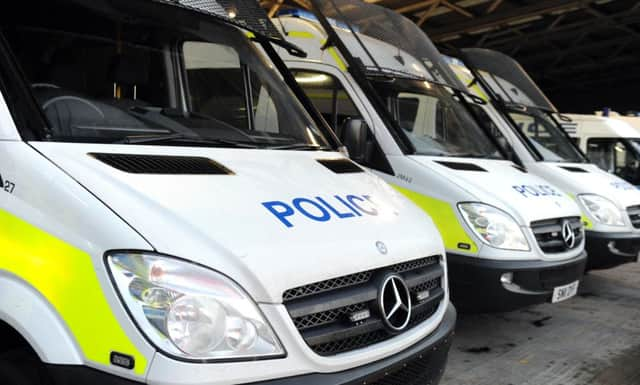Chris Marshall: Police Scotland has work to do


The key word here is “deployed”. While Police Scotland had not sent armed officers to any of the 1,600 plus incidents, those patrolling in Armed Response Vehicles (ARVs) had used their own discretion to turn up at missing person searches and dangerous driving incidents among others.
No-one is seriously advocating that police officers sit idly by while “routine” crimes take place simply because they are armed. But MSPs are right to be upset at Police Scotland’s hierarchy, whose statement on armed policing in October now looks disingenuous.
Advertisement
Hide AdAdvertisement
Hide AdThis would be bad enough, had the force not also been disingenuous on the issue of stop and search and then disingenuous on the issue of why stop and search data was released to the BBC.
Police Scotland needs to admit it has a communication issue, namely that it has failed to properly communicate major operational changes. The beleaguered Scottish Police Authority also has a role to play in this.
The headline finding of the watchdog’s long-awaited report into armed policing, which was published in January, was that a “narrow majority” (53 per cent) of the public supported the use of gun-carrying officers to deal with routine incidents.
While “whitewash” might be too strong a word, the report completely missed the point, almost seeking to level blame at those who had opposed the policy in the first place. It was more evidence, if it were needed, that the relationship between the police and the SPA is too cosy. The SPA report had initially been due for publication in December but was delayed at the last minute after being shared with contributors including Police Scotland and the Scottish Government.
Independent MSP John Finnie, a former police officer, has said the report was delayed after the police went “ballistic” and demanded a re-write, something that is denied by both the force and the watchdog.
Nevertheless, the claim is an indication of where the level of trust in the police has sunk to in some quarters.
We are regularly told that crime in Scotland is at a 40-year low. In many ways the creation of the single police force has been an overwhelming success. But on the crucial issue of winning hearts and minds, Police Scotland has much work to do.
FOLLOW US
SCOTSMAN TABLET AND MOBILE APPS